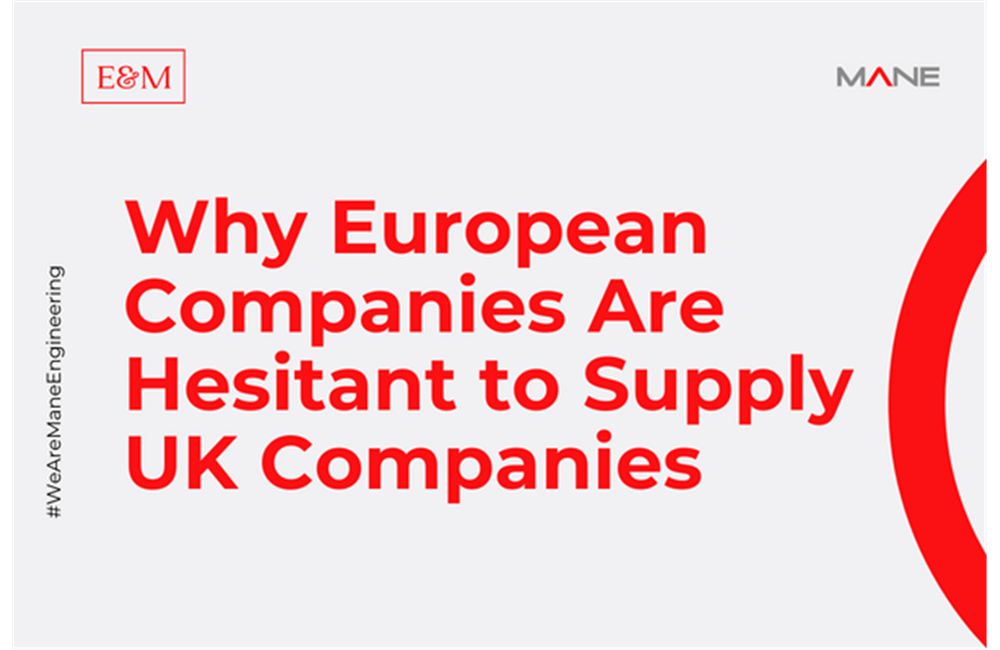Why European Companies Are Hesitant to Supply UK Companies
16 Mar, 202310 minsSince the UK's exit from the European Union (EU), there has been a growing concern over ...

Since the UK's exit from the European Union (EU), there has been a growing concern over the impact on trade relations between the UK and EU. Many European companies have become hesitant to continue trading with UK companies, leading to a decrease in the supply of goods and services from EU companies.
According to a survey conducted by the Institute of Directors, 18% of UK companies have already stopped trading with the EU since Brexit, while a further 13% plan to do so in the future. On the flip side, The European Commission estimates that up to 70% of EU companies that previously traded with the UK may no longer do so due to Brexit. Whichever side of the story you lean towards, the overriding message is clear. There is no escaping the impact that Brexit has had on once strong trade relations between the UK and EU.
One of the main reasons why European companies are less likely to supply UK companies post-Brexit is the added bureaucracy and complexity that comes with trading outside the EU. Prior to Brexit, companies in the EU could trade with UK companies without any major obstacles or trade barriers. However, since the UK is no longer a member of the EU, there are new customs procedures, tariffs, and regulatory barriers that companies have to navigate.
One of the key contributing factors is that UK companies now face additional costs and complexity due to the new customs procedures required for trading with the EU post-Brexit. Estimates by the UK government suggest that this will cost UK businesses an additional £7 billion per year. It's no wonder that many European companies are less likely to supply UK companies, given the added expenses and potential complications.
Another factor that has contributed to the reluctance of European companies to supply UK companies is the risk of non-payment or delayed payment. This is particularly true for small and medium-sized businesses that may not have the resources to deal with the added bureaucracy and risks associated with trading outside the EU. These companies may be hesitant to supply UK companies without guarantees of timely payment, which can further complicate trade relations.
Overall, the government will need to play a more prominent role in helping UK companies to overcome the challenges they face in maintaining their trade relationships with EU companies. By negotiating better trade agreements, streamlining customs procedures and providing financial support in particular SME Businesses, the government can help ensure that UK companies remain competitive and continue to thrive in the global marketplace


